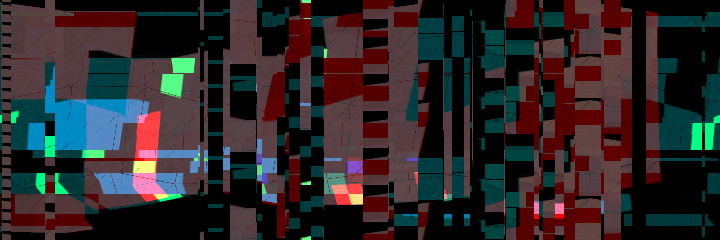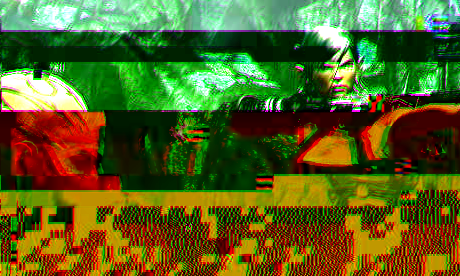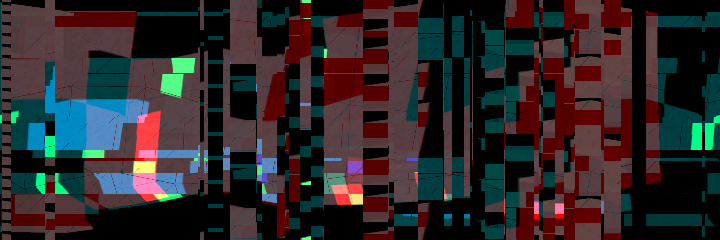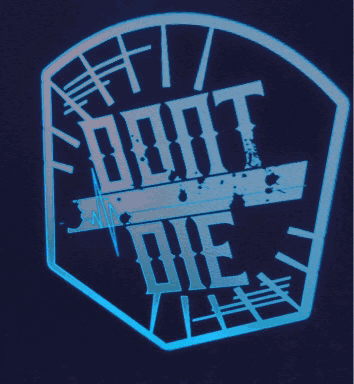- Craig
My name is Craig Stern. I live in Chicago. I'm 32 years old and what qualifies me to talk about games is I've been making videogames for about nine years now. I'm the president of Indie City Games, Chicago area indie-game developer meetup. I've run the website indierpgs.com for about four or five years now. I also founded it. I've just had a wealth of experiences in and around games, specifically in the indie space.
- David
I'm not sure when this will be going up, but you just launched a game a couple days ago.
- Craig
That's correct. I just launched Telepath Tactics.
- David
Congratulations!
- Craig
Thank you.
- David
So, I've been on the other end of it when a game comes out. What is it like for your side of the phone?
- Craig
Oh man. It's thrilling and terrifying and deeply tedious. The sheer amount of time you spend answering emails and responding to forum posts after a game comes out is mind-boggling.
- David
What are the variety of questions you're being asked? Are they simple, straightforward things they could tell just by Googling?
- Craig
A lot of them are. A lot of them are just complaining about bugs and I have to try to herd people into issuing bug reports that are actually usable in such a way that I can actually find and fix the thing that they're complaining about.
- David
So, we should probably clarify: Who all works on the games that you are releasing?
- Craig
Me and sometimes, like, contractors.
For example, in Telepath Tactics, I did everything except for the soundtrack, which is primarily by a guy named Ryan Richko; and the visual art, which, you know, the work was spread across, like, nine different people.
- David
I always like to ask about is general audience perception of the work that goes into a game. Do you feel like the audience for games -- even when it's just you and maybe a few contractors, like, do they have a good sense of that? That you're not necessarily doing everything by yourself, even if you're the driving force behind it?
- Craig
I think the audience doesn't necessarily understand the structure under which I create these games. I get a lot of questions from people assuming I'm just working with a core team, and I kind of am, but really I'm the core team and there are contractors who are working with me.
- David
What sort of stuff do you contract out and what sort of stuff do you not, and is that typical to you or is it just typical for small-scale development?
- Craig
It's extremely typical with indies to do that. The past couple of games, I've contracted out art pretty consistently just because I'm not a professional artist. I don't have that as a core skill. I still did, mind you, end up contributing art to my past couple of games, but I'm not a professional and as much as possible I'd like to leave that to people who can make my game look really good and therefore make it marketable. Programmer art is not received well these days, even in the indie scene.
- David
[Laughs.] Why not?
- Craig
There are just too many good artists working on games. The bar has just risen too much for you to get away with that.
- David
Every launch is different, right?
- Craig
Mhmm.
- David
What was something that caught you off guard with this launch? And at the time of this recording, I should say, we're less than a week out from your launch. This coming Thursday, it'll be a week. Today is Monday.
- Craig
Probably the technical difficulty involved in getting the game up and running on Steam. I was not prepared for that.
- David
How do you mean?
- Craig
I mean, selling directly or on pretty much any other storefront, all you have to do is produce the installer, then sell that by means of the storefront to the end user. And Steam does not work that way.
- David
I'm very fascinated Steam. I know there's a $100 fee to be able to sell on there, is that right?
- Craig
Well, there's a $100 donation required to get onto Greenlight, which, in turn, is a requirement to get onto the store. So, effectively, yes.
- David
So, beyond that, without getting too much into the nitty-gritty, what are the things you have do to get them showing up all nice and shiny like all the other games?
- Craig
Um, I'm not honestly sure if I'm allowed to talk about that?
- David
[Laughs.] This comes up sometimes in these interviews, so can you at least explain why you're not allowed to talk about it or why you think there are parts you can't?
- Craig
Well, you're required to sign certain agreements when you become accepted as a Steam partner and I haven't really looked at them in detail to make sure that I'm okay to divulge details of the process. But I can, I think, safely say that it's a pain in the ass.
- David
And I can safely assume most people know what that is.
So, there's no real good segue from that into this, but something I wanted to ask you about is: Why does the press pay attention to the things it does? You have tweeted about this from time to time.
- Craig
Well, the press by and large is a commercial body. The websites that comprise the press are commercial entities. They need to make ad revenue and they, I assume, focus on the things they think will pull in ad revenue. I can think of no other possible explanation for the kind of lengths they will go to write completely inane stories about AAA games while completely ignoring genuinely interesting indie stuff.
- David
Well, over the course of the times you've been making games, has it been harder to get noticed? Is it easier? Are there more places to get noticed by?
- Craig
It's exponentially easier to get noticed the longer you've been doing it because this is a scene that's built upon personalities, right? If you are known to people, they are automatically going to pay more attention to you and to your work than if you're unknown. Unless you have something astoundingly compelling all on its own; and we're talking something that like, maybe, one out of every 10,000 games gets to do. It's about who you are. Eventually, my goal is to be like Rami Ismail where I can scratch my ass and it will be news. Or, you know -- with all respect to Rami, he's a good game developer, but to some extent it's also a cult of personality.
- David
I remember a couple years ago a friend sent me a story about, actually, I think it was Vlambeer also, where someone had lost their backpack. And I think a few different outlets picked it up. But the whole term "game journalism" confuses me, and I get a little confused going to these sites about what is news and what they're meant to be doing. Someone's stuff going missing at a conference isn't news. It's nice of the outlet to do, but it dilutes what you'd expect from it overall.
Like, when Patton Oswalt took a summer off Twitter last year, that was news also, somehow, according to some outlets. "Man Stops Using App."
- Craig
Right, right. The games press latches onto these things that are interesting, if not indicative of a larger problem. Like, just to use Rami as an example, again: The piracy issues he's had to deal with are indicative of a larger problem, so that's definitely worth reporting on. But it can also skew really petty.

So, like, just to name one recent example: Titan Souls and the whole TotalBiscuit fiasco. Holy shit. Are in high school? What is this?
- David
What was the fiasco?
- Craig
This is what happened: TotalBiscuit apparently had Titan Souls on his queue to make a video about. He sent out a tweet in advance of creating the video, offering his initial impressions. He said the game was not for him. He didn't really care for it.
One of the developers, I believe it was the artist with Acid Nerve sent out a tweet saying, and I'm just paraphrasing here, something to the effect of: "Thank God. ToiletBiscuit doesn't like our game." And then another tweet with a picture of TotalBiscuit's tweet that had been printed out and taped to his fridge.
So, then, TotalBiscuit caught wind of this and posted a five-minute Soundcloud saying that he would not be producing a video for Titan Souls anymore because of the fact that he had been insulted by the developer. He felt compromised, his ability to give an unbiased look at the game. That is what happened.
- David
And then what happened in fifth period?
- Craig
And then in fifth period, all the people who've decided that they hate TotalBiscuit immediately took this as an opportunity to tweet about how they were all gonna go buy Titan Souls and everyone should go buy Titan Souls 'cause TotalBiscuit doesn't like it and screw TotalBiscuit and stick it to the man -- and I was just like, "Come on, people!"
- David
And then at 3 o'clock after Home Ec. there was going to be a burning of all indie games that some people didn't like and --
- Craig
I mean, people have legit reasons for not liking TotalBiscuit. I'm not saying they don't. Is promoting a game 100 percent just to spite someone you don't like -- is that really the kind of thing we want to be encouraging in this industry? Doesn't that strike you as kind of, I don't know, unprofessional?
- David
How old do you think the average person is engaging in this kind of behavior?
- Craig
I would imagine it's mostly people in their twenties and thirties. That's just my raw guess. Just to bring this back to what we were talking about before: This is another example of the industry being driven in large part by personality.
- David
Is anything in the entertainment industry at large a meritocracy?
- Craig
Well gosh, I don't know. [Laughs.]
But still. You want to talk about issues in the games industry, and I see that as an issue. I see that as a problem.
- David
So this ties into something you mentioned wanting to talk about. I'm quoting here, "The fact that many of the things we discuss in games end up being little more than opportunities to create or reinforce ‘ingroups’ and ‘outgroups.’" So, this feels married to that, and an example of how we ended up doing that ourselves.
As you see it, who are the "ingroups?" I'm not asking you to name names, but just, what are they?
- Craig
Well, there are different "ingroups." There's some pretty obvious divisions in the game community right now. I do not care to invoke its name, but there is The Thing that has inspired near universal loathing and there are people who sort of get their jollies by attacking people associated with it. Then there are people who kind of stay out of it. There's a certain amount of posturing that goes on in that space.
- David
What are the other "ingroups" in games that you see?
- Craig
Well, there are different "ingroups." I think to some extent Mike Bithell actually posted a thing talking about this about how lots of people are just friends, right? They just help each other out with each other's games and, I admit, I'm a beneficiary of this same thing. I have lots of game-developer friends in Chicago and we help each other out. It's really nice. It feels good emotionally. But at the same time, I would not want to be someone stuck on the outside of that.
- David
So, that's two "ingroups." What are the others, or what do you feel are the “outgroups?”
- Craig
Right, so, that's the thing. Right? Being an ingroup and an "outgroup," those aren't mutually exclusive. One person's “ingroup” can be another person's “outgroup.” So, just to name one example -- and I don't want to name names for obvious reasons.
- David
Sure.
- Craig
And I've written about this in the past. Places like IndieCade or the IGF, right, there are very specific kinds of games that these places permit to be shown, that they permit to receive adulation, that they acknowledge as good and valid. And there are kinds of games that they explicitly ignore. Maybe not explicitly, but they set themselves up so that systemically these games are never going to receive recognition. There are people who make games of that sort, and they are effectively rendered members of an "outgroup" in that context. That's one example.
- David
We should probably explain what IndieCade and IGF is for people reading this who might not know.
- Craig
The IGF is a festival where there's a grand prize of $30,000. There are a few other prizes that are handed out. People that win in the IGF go on to become judges in the next IGF. So there's a little bit of a self-perpetuating taste that's developed for it.
- David
Maybe this is an example of my being a part of another "ingroup," but I was told by some friends who have been judges in years past that "the bar is incredibly low" to be involved to judge, and there's some murmuring over frustration that some of the games that get the most recognition are familiar games or games that seem to be inferior versions of things we've seen before -- perhaps due to the self-perpetuating taste you mentioned.
I hate to spread gossip in this spaces, but since you paraphrased, I feel it’s only fair that I do the same. That’s me just paraphrasing what former judges have told me. Certainly not true of all winners. But I feel like the spirit of a thing like that should reward things that are different.
- Craig
That's the systemic problem, right? There are a certain number of judges. There are a certain number of games. And the amount of time that judges have to judge each game, systemically -- I'm not accusing anyone of intentionally doing this, but it just renders the judges incapable of adequately experiencing games that are slower and longer form.
- David
I'm glad you're bringing this up because something I've always wanted to talk about but never found a space for is the bizarre circumstances that some game critics have to operate under. Like, I remember sometimes at A.V. Club getting a game on a Friday and copy would be due Monday. That's not particularly fair to anybody, but least of all the team that made the game. Do you, Craig Stern, want a critic of the game you just released last week to be turned around in 72 hours?
- Craig
Not unless they're going to clench their teeth and lie about how great it is.
- David
[Laughs.] You're so modest.
- Craig
[Laughs.]
- David
But is this a thing people who make games know about? Do you know there are outlets that do stuff like that sometimes?
- Craig
I would not be surprised. I did get one outlet explicitly -- and I was actually impressed that they were honest enough to do this -- say that they would not review my game unless I paid them.
- David
How much?
- Craig
Oh, I don't remember. It was like $50 or $100.
- David
I think you should do it.
- Craig
[Laughs.]
- David
RPGs are sort of the black sheep of the critic circles because if you need to really muscle through a game, and this isn't even a bad thing, but one of the best things about that genre becomes the thing you grumble about the most.
- Craig
It's quite difficult. I've already received dramatically more press attention for Telepath Tactics than I did for my last game, and that's due entirely -- I'm convinced -- to the fact that people in the press are more familiar with my work and it's gotten more play due to Kickstarter. If I were not as well-known, I'm quite sure it would have received even less attention than it has. Even then, I'm still making my way up the tiers of people who are worth paying attention to in the world of games.
That sounds funny, but it's true. I sent out review copies a month before release. I gave people a full month to play it, and to date there have been three reviews out of dozens and dozens and dozens of review copies I sent out, including to people who explicitly told me they were really interested in reviewing it. You're just not as high a priority until you're a big name.
- David
I think you and I know who the big names are, but some of the big names, I feel like, haven't been around longer than you. Do you think that's a fair assessment?
- Craig
Yeah.
- David
You would agree with that?
- Craig
I would.
- David
Okay.
- Craig
[Laughs.]
- David
That moment won't come across in the transcript. [Laughs.]
- Craig
I think RPGs in general, there's a longer incubation period for proving yourself just because the sheer amount of content you have to create makes it dramatically more difficult to polish it to a level where people will take it seriously and think it's professional. Like, just to take one example: Thomas Was Alone. A dead-simple platformer with a very pleasant-sounding Englishman narrating and kind of a nice little story about friendship. That is not a game with huge content requirements, right?

That's a game that you can sit -- and presumably Mike Bithell did -- and polish like crazy before release and take all the time in the world to make it super, super professional. When you're making an RPG, if you're an indie, that's really difficult because you have to produce a ton of content and you're talking about polishing exponentially more than you would if you were making, say, a platformer or a puzzle game or a point-and-click adventure game, even.
- David
I can't help but notice again we're talking about an "ingroup" and an “outgroup.” Something you said is that a lot of these conversations "end up being manifestations of a thinly veiled tribalism. Sound and fury signifying nothing other than whether you're okay to associate with them." How do we fix that?
- Craig
I don't know that we can. [Laughs.]
- David
[Laughs.] I don't know that we can, either.
- Craig
We're all monkeys deep down. That's where our way of thinking and interacting sort of originated. When Twitter is abuzz with debates about the term "gamer" and how "gamers" are gross or "gamers" are okay, what are we really talking about? What we're talking about is whether we are part of an "ingroup" or whether we're not going to associate with an “outgroup.” We're not really having a substantive intellectual discussion at that point and I'm not sure that, frankly, most people have the intellectual wherewithal to really step back and think about what they're doing when those conversations are going on.
- David
[Laughs.] I don't think thought is often involved, and that's not me slamming anyone. It's just a lot of gut reaction.
- Craig
Yes, and frankly, Twitter enables that.
- David
Yeah. And I'm as guilty of it as I'm sure you are -- though I've never seen you engage in such shenanigans. But I feel like more developers are, by necessity, much more cautious about this stuff than press people. Like, if you notice, most people who work on major major games aren't even really on social media or active on it. But something they say can be taken out of context or made into a story, even when it's just like, "Well, I played Such-and-Such Game, didn't really like it." But it gets to a point where it's worth asking: What does any of this really have to do with videogames?
- Craig
I think with most people, it is at least rationalized out of a desire to do good. It's at least rationalized to make life better for people who are marginalized. To make life better for marginalized groups by advancing progressive ideas and stamping down on harmful ideas. At least on the progressive side of things that's, I think, how it manifests things. That might lead some people to uncharitable interpretations of things other people have said in the interest of rooting out the evils they want to be involved in fixing. So there's that, right? I'm sure there's a very good analogy in the conservative community as well. God knows The Movement That Shall Not Be Named has done its share of witch hunting.
- David
Which, again, what does any of that have to do with videogames?
- Craig
If you can convince yourself it has anything to do with videogames, that's all it takes.
- David
Well, something you wanted to talk about was an "over-reliance on chance to determine outcomes of play actions." For people who don't play games, can you put that in layman's?
- Craig
Yeah, if you've ever played Dungeons and Dragons, you know how you roll dice to decide pretty much everything? That's literally what RPGs originated from. They took the Dungeons and Dragons ruleset with its incredibly prevalent die-rolling and they came up with random-number generation, and they built it into their engines and RPGs have been obsessed with using random numbers to resolve player actions ever since.
- David
Why is that a pet peeve for you? They're using it as a crutch, you think?
- Craig
Oh God yes.
Basically, the thing that makes turn-based combat exciting is uncertainty. It's unpredictability. It's that you don't know what your opponents are going to do, and you have to think of all the possible outcomes. You have to think of ways to try to head off any aggression by your opponent. You have to think of ways to improve your position, maybe take some enemy pieces out of the fight so that their ability to hurt you is hampered. There's all these considerations that go into it when there's uncertainty and dice are a really easy--and, in equal part, really lazy -- way of generating uncertainty. You don't need dice to generate uncertainty. You can generate uncertainty in other ways.
Chess, for example.
If you're playing chess against someone who's more or less at your level, there's uncertainty there because you don't know what they're going to do. You can make a few educated guesses about what they're going to do, and the tension comes from trying your best to account for everything and knowing you might have missed something, knowing that they might have a way around your plan and that you're going to be on the back foot.
So, there are two things that kind of feed into it. The two ingredients of that recipe are a large possibility space and a clever opponent. If you have a clever opponent and a large enough possibility space, then there is going to be tension whether there is random results or not.
- David
Is this something that is only RPGs or other genres as well? This sort of reliance you're talking about.
- Craig
It's mostly germane to RPGs because other genres by and large don't randomize results in the way that RPGs do.
Imagine a game like Super Street Fighter IV randomizing results. It's absolutely absurd to think about. Imagine Ryu throwing a punch at Ken and then some hidden random-number generator beneath the surface of the game deciding whether the punch lands and how much of Ken's life gets taken away if it does. It's absurd. You can't imagine that happening in any other genre because player control is absolutely paramount.
In those genres, uncertainty is generated by clever AI, by a large possibility space, and to some extent by the difficulty of pulling off moves with proper timing in real time. You don't have the timing element in turn-based games, and so a lot of developers turn to dice to try to inject more unpredictability, when really, in my opinion, the solution ought to be to focus more on making a large possibility space and a cleverer opponent.

- David
So, possibility space. I think I know what it means, but for anyone reading this who doesn't?
- Craig
Yeah, possibility space is pretty much what it sounds like. It's the number of possibilities that are given to you in a given game system. So, you have Chess, where the possibility space is literally every possible configuration of all the pieces on the board. And then you have a game like Go, with a much larger possibility space because of a larger board and more pieces that can be in more configurations. So, the more mechanically deep and rich your game is, the larger the possibility space there is, and the more uncertainty about your enemy's moves.
- David
So, the other thing you wanted to talk about was an over-reliance on tropes. And to my mind these are sort of linked. And to my mind, that's a different possibility space, but of all the possible characters you can put into a game, of all personalities you can put in -- but when it comes to RPGs, I'm curious to hear what you hear is being overly used. [Laughs.] In your email you said, "How many times must we play the inexpressive male protagonist harboring a Deep hurt because of losing the ones he loved?"
Now, are you talking about RPGs here or are you talking about a different genre?
- Craig
I mean, it's everywhere. RPGs are not exempt. RPGs, in particular, have problems with the representation of women. They have problems with the -- frankly, I think Anita Sarkeesian's videos are really instructive on this topic. She comes up with a lot of examples of women being stripped of agency. Not being the avatar of player action, instead just being sort of window dressing. So, that's one example.
One RPG-specific example would be -- and you can look this up on TV Tropes, this is an actual thing: Guys Smash, Girls Shoot. That's the trope that your frontline fighters with axes, swords, and spears are all dudes. Your magic users, your archers? Those are women, because God forbid you have women as frontline fighters.
- David
I'm on TV Tropes now. "Part of this is due to cultural taboos against showing women getting hit. It may also have to do with the fact that a skimpy costume looks more plausible on someone who isn't in melee. While action girls have long since become commonplace these days, heroines are still more likely to have ranged powers than the guys."
I've never thought about this.

- Craig
Another example that was pretty emblematic was inXile's Hunted: The Demon's Forge. That was, like, your stereotypical big brawny guy with a melee weapon and sort of sleek, elven woman with a bow.
- David
[Laughs.] I remember that game. I reviewed that game.
- Craig
I mean, not to pick on inXile. It's everywhere, right? And I think it's tiresome to just rely on tropes like that, so I've gone out of my way to try to subvert them wherever possible.
- David
You said you were taking cues from Joss Whedon, in your emails.
- Craig
Yes.
- David
Which is interesting because I feel like there should be more overlap in the Venn Diagram between people who play videogames and people who like Joss Whedon because they very often are the same people. Like, where are the games drawing inspiration from more commonplace nerd interests? Like, it doesn't have to be sophisticated literature or -- just stuff we've seen on TV that's not superheroes.
- Craig
[Laughs.] I feel like games do draw from that subject matter a lot. They're not very good at drawing the right things from it.
- David
How are you defining "the right things?"
- Craig
I'm defining "the right things" as the things that are clever and sophisticated. The things that make them genuinely interesting, as opposed to just the broader themes. So, we see no end of games about pirates. There is no shortage of games about zombies, games about vampires. Things that are of interest to the broader nerd culture are frequently made the subject matter of games. What isn't taken for use in games nearly as much is the clever treatment they sometimes get in other media.
- David
Speaking of Whedon, do you feel games are as writer-friendly as they could be?
- Craig
I think games in general, with regard to writing, suffer from pretty much the same problem that they do with regard to music, which is that everyone who makes a game thinks they're good and they're not.
- David
[Laughs.] I remember back in Chicago before college visiting Midway games in the whole, "What am I gonna do" phase of my life. I think this was around the time they were working on Mortal Kombat: Mythologies, and they met with me and let me do a studio tour and had an informational interview of sorts. I remember them talking about how they don't need outside writers: In games, whoever comes up with the idea for the game tends to write it.
Not that there's anything wrong with that, it's just I get the sense that through that tradition, games aren't as open to having writers involved. So the end result is, unless you really love games, you're going to be writing something else.
- Craig
I honestly -- I was a creative writing major back in college, where I spent most of my time focusing on short stories and poetry, and I actually genuinely prefer games as a medium for writing because it disposes with the parts that I find tedious. I hate having to describe every little thing in a scene. I find it refreshing to have that stuff displayed graphically, to free me up for the things I find much more interesting, which are characters and dialogue. And to some extent that should be freeing to other writers. We should really be having writing, at least for linear games, at least on the level of quality as we have for TV screenwriters. Like, why do we not have an Aaron Sorkin yet? Is there any reason for that? I don't think there is.
- David
What do you think of the critics in the games space?
- Craig
I feel like there is not enough good analysis coming from the critic side. There are some exceptions, mind you. I've really been a big fan of Austin Walker's recent work. I think he's done some really, really interesting work delving into the themes of recent games and how their mechanics kind of play into or undermine them. I'd really like to see more of that stuff in the world of games criticism because it's nice to read reviews that are like, "The graphics are okay. The gameplay's really good. I like the music." But you know, at some point it'd be nice to get a little bit more of a sense that these writers are really thinking hard about what they're playing as works of art and not just as bits and bobs to consume mindlessly.
- David
[Laughs.] "This game has good colors."
- Craig
[Laughs.] Yeah.
I should mention that this is not the first time I'm saying this about me wanting a little bit more sophisticated criticism on the games journalists' side of thing. I wrote a piece in 2012: "Game Immaturity and the Journalism that Can Fix it."
A lot of things I write are sort of reactions to things I hear in the games community. Sometimes they're things I agree with, but I think they could go further. Sometimes they're things I disagree with and I feel like there needs to be a rebuttal. In this case, it was a reaction to a rant by John Walker of Rock, Paper, Shotgun. He had stated, "Where is our commentary? Where is our criticism? Where is our subversion? Where is the game that questions governments, challenges society, hell, asks a bloody question? Let alone issues. Good heavens, imagine a game that dealt with issues!"
My response to that was, "Yes, we need more of that. But we also need games writers to actually be actively writing about those things in games if that's ever going to happen." For all we know, those games exist. In fact, I do know that those games exist. I see very little in the way of coverage that acknowledges those aspects of the games.
- David
Are we the "ingroup" or the “outgroup” at this point?
- Craig
That's a great question. I think we're both.

